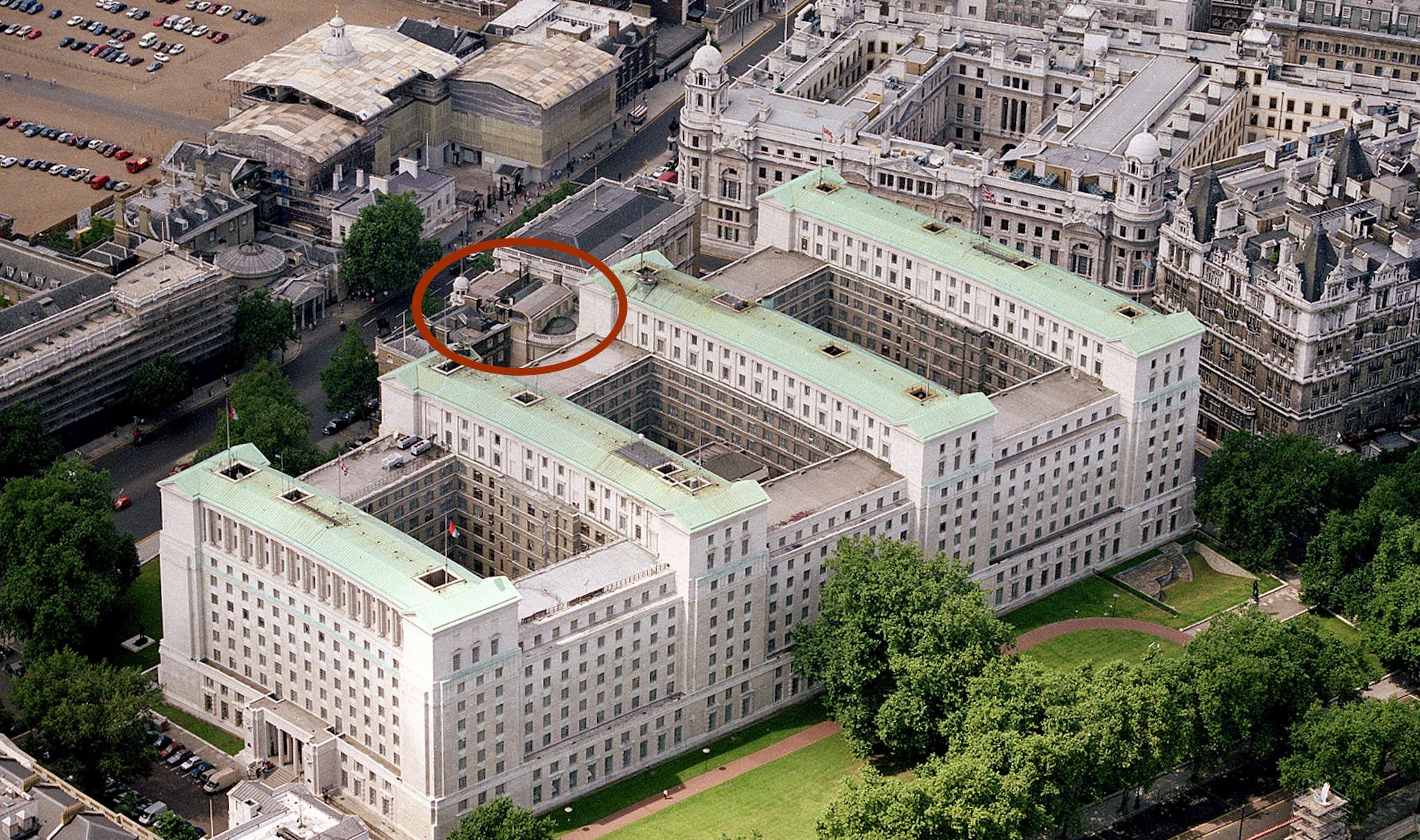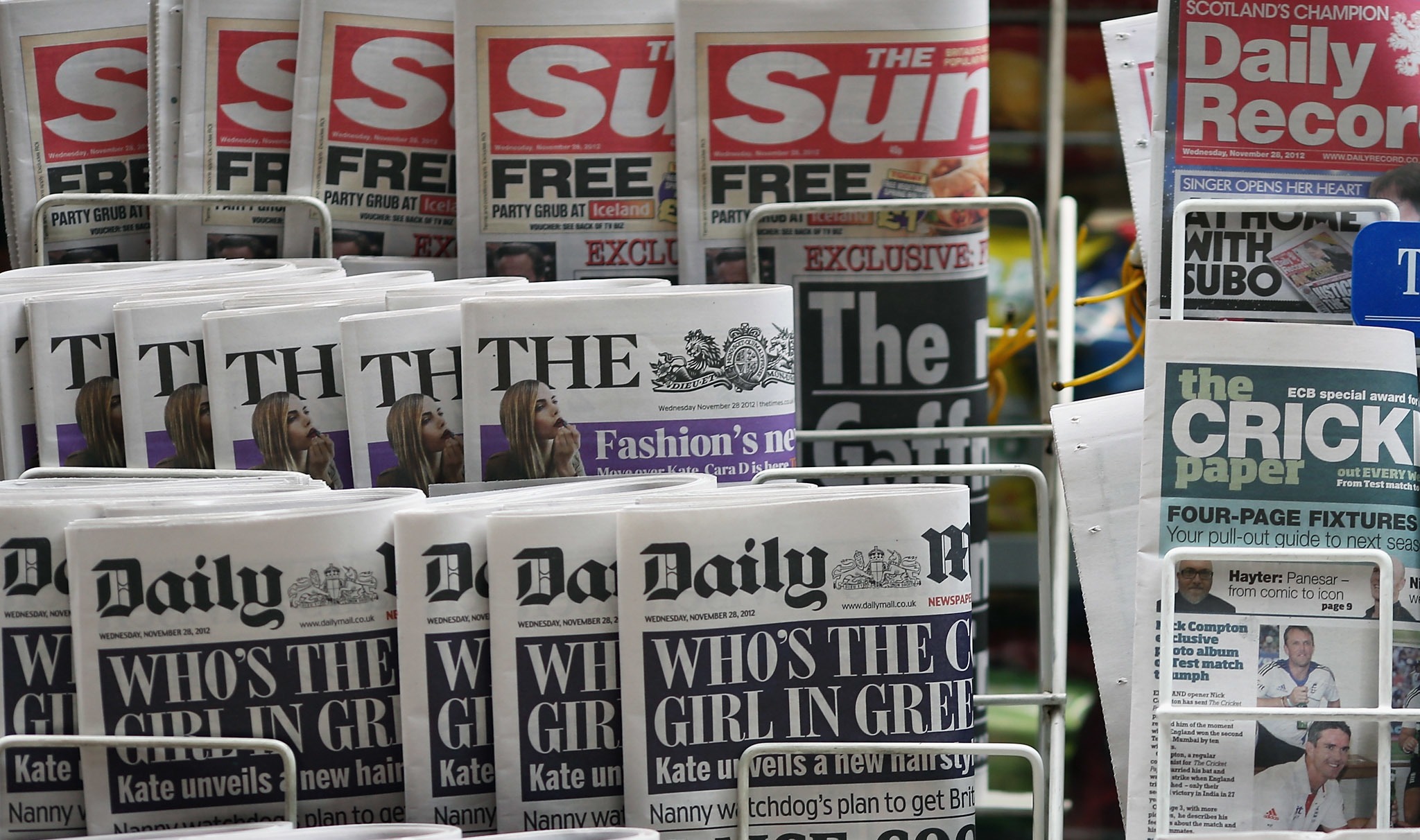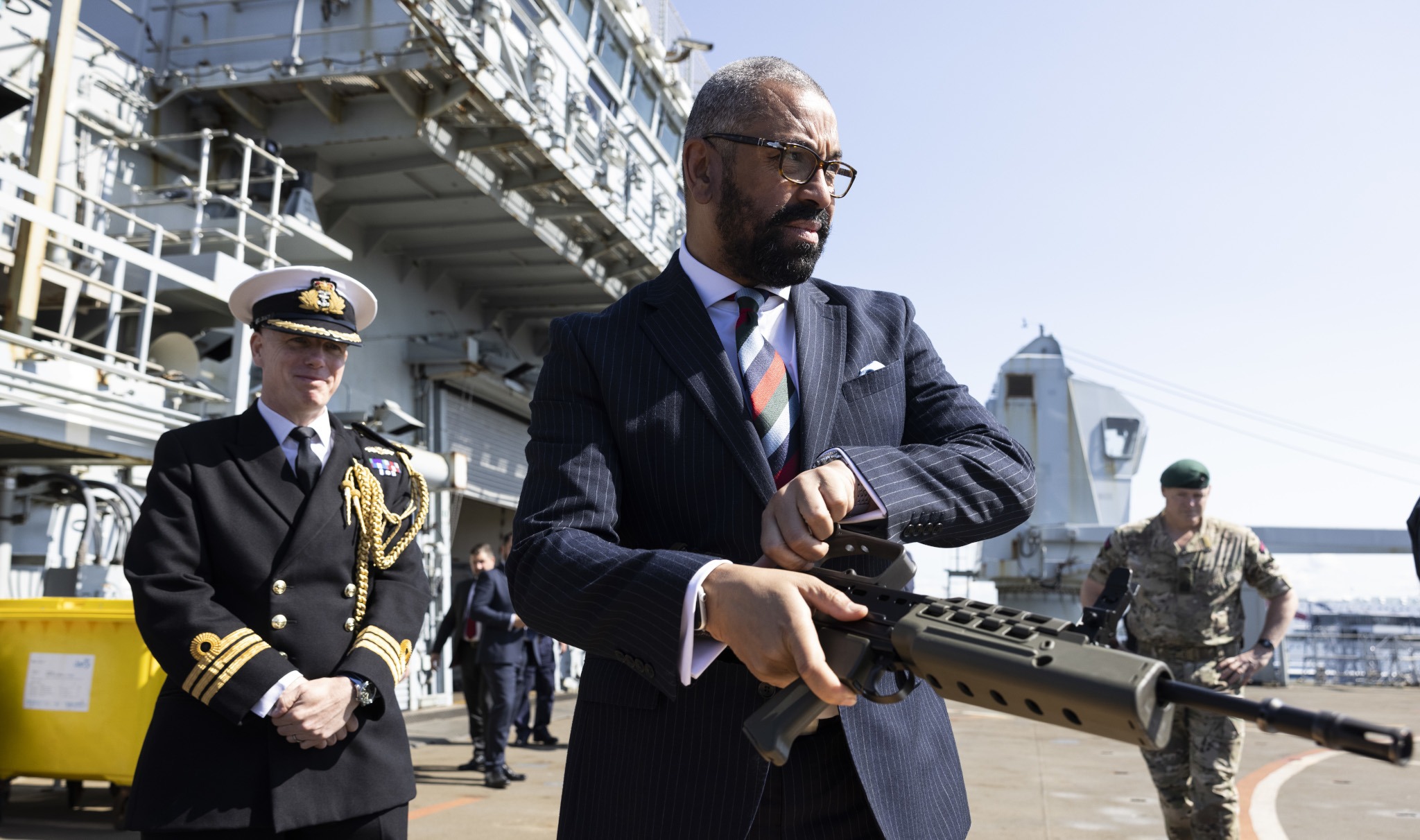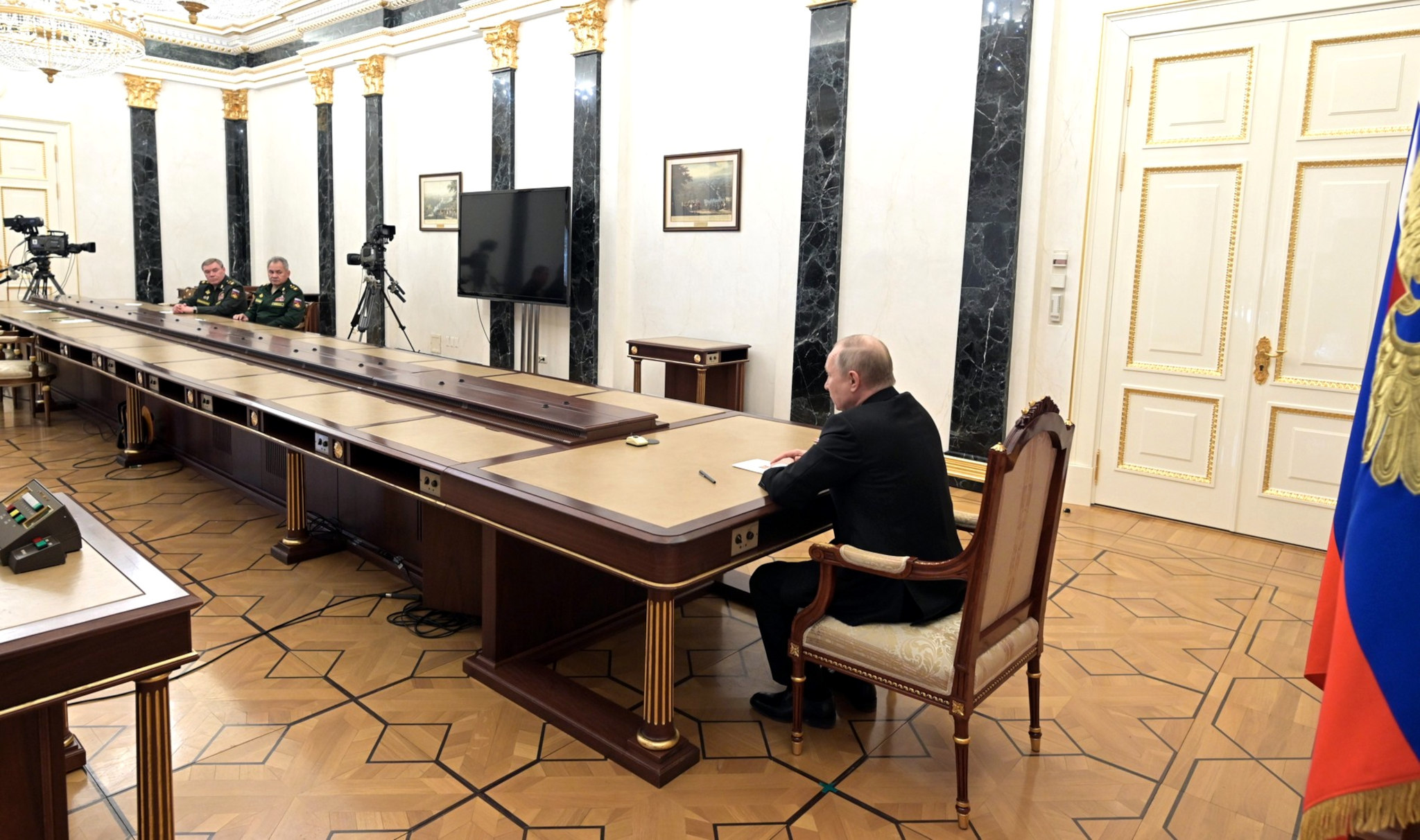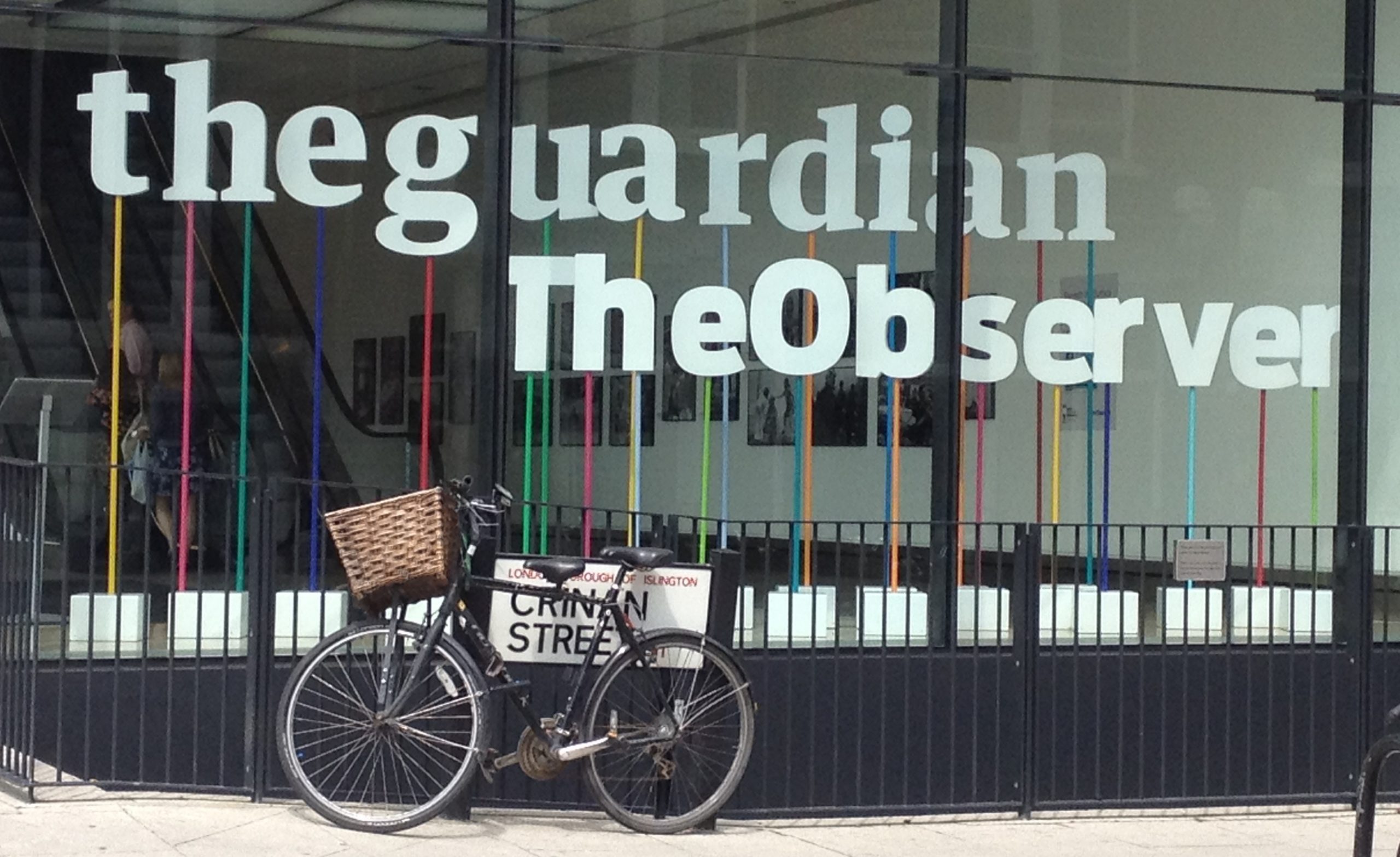RUSI has been cited in 336 UK press articles in the past two years, and is invariably described by journalists simply as a “think tank”.
But the organisation’s funders include the UK and US governments, alongside arms corporations, and its commentaries overwhelmingly reflect the perspectives of the British establishment.
Declassified could find no instances in the hundreds of press articles where RUSI’s funders were mentioned.
In the past two years, the Guardian or Observer mentioned RUSI in 106 articles, the Telegraph and Sunday Telegraph in 66 and the Times and Sunday Times in 28 articles.
The references in the papers were quotes from RUSI staff, notably on the war in Ukraine and UK military policy, or reports released by the organisation.
RUSI says it is “an independent think tank engaged in cutting-edge defence and security research” and that it “embodies nearly two centuries of forward thinking, free discussion, and careful reflection on defence and security matters”.
Based in Whitehall, close to the Ministry of Defence, RUSI was founded in 1831 by the Duke of Wellington, the Field Marshal and later prime minister.
Its second largest funder – providing between £500,000 and £999,000 – is the US State Department while its other large sponsors include the UK Foreign Office, the British army and arms corporation BAE Systems, which all gave up to £0.5m each in 2020-21.
BAE, Britain’s largest arms exporter, has given between £600,000 and £1.5m to RUSI in the past three years.
Smaller funders include arms manufacturers Lockheed Martin, Airbus, Babcock, Leonardo, Northrop Grumman, and Raytheon, alongside the UK Ministry of Defence and the Royal Navy.
RUSI’s largest funder is the European Commission, which represents European governments.
Army, CIA, Foreign Office
RUSI does not hide its establishment credentials. Its director, Karin von Hippel, is a former senior official in the US State Department while its senior vice-president is former CIA director and US army general David Petraeus.
RUSI’s chair is former foreign minister David Lidington while its vice-chair is former UK national security adviser Lord Peter Ricketts. Last year, the organisation’s annual security lecture was given by Sir Jeremy Fleming, the chief of intelligence agency, GCHQ. The chief of UK Defence intelligence, Adrian Bird, delivered a speech at the organisation last month.
RUSI has “experts” and “fellows” working on international security issues. Its “UK foreign and security policy” fellows include a litany of senior military figures – a retired Air Commodore, two former Vice Admirals, and three former British army generals.
“The most recent recipient of RUSI’s gold medal was Henry Kissinger”
Other fellows include former Foreign Office figures – a foreign secretary (Sir Malcolm Rifkind), a foreign minister (Alistair Burt), a political director (Sir Simon Gass), a director-general (Peter Jones), and a chief historian (Gill Bennett).
The highest award RUSI gives is the ‘Chesney gold medal’, which is “to mark a lifetime distinguished contribution to international defence and security, to the benefit of the United Kingdom and/or the Western Alliance”.
Its last recipient, in 2015, was Henry Kissinger, the former US secretary of state responsible for mass civilian deaths from US carpet bombing of Cambodia in the early 1970s, among other war crimes.
Establishment interests
RUSI’s website occasionally publishes critical perspectives on UK foreign policy, usually written by non-RUSI commentators.
Recent articles have challenged UK government support for Rwanda’s authoritarian leader Paul Kagame, accused the UK of failing to stand by the people of Hong Kong, and criticised UK strategy in its war in Afghanistan.
However, most of RUSI’s articles and commentaries are written by its “experts” who overwhelmingly adopt pro-UK government perspectives, reflecting Anglo-American establishment interests.
A key basic notion is that London and Washington act benignly in the world, seeking to promote positive values.
For example, according to Michael Clarke, RUSI’s former director and now a fellow, one of the UK objectives in its intervention in Afghanistan was “to demonstrate commitment to Western ideals of law and international stability”.
For another RUSI fellow, the UK military experience in Afghanistan was “two decades of flawed but well-intentioned endeavour”.
A recently-launched RUSI initiative looking at UK policy towards East Africa apparently only considers the UK as a benign force. It says: “The project will look at how the UK has sought both to bring about positive change in the countries in which it is working and to secure secondary (largely geopolitical) benefits in the national interest”.
In fact the UK, especially its military, behaves abominably in at least one of those East African countries, Kenya, as Declassified has carefully documented.
‘Leadership’
Typical of the RUSI approach is reinforcing UK (and US) “leadership” in international affairs. One senior RUSI fellow has written that “now is the time for the UK…to take a leading position in setting out a vision for a new European security order”.
The starting perspective is that of the UK and US security establishment. The same writer notes that “the transatlantic community has a responsibility to ensure…it fashions and signals to Moscow a robust policy of deterrence”.
Soon after Russia’s invasion of Ukraine in February 2022, RUSI’s deputy director Malcolm Chalmers wrote: “In contrast to the botched experience of NATO’s withdrawal from Afghanistan, the US’s leadership of the Alliance during this crisis has rightly been praised.”
He added that the Biden administration “moved swiftly to lead NATO’s new war strategy” and that “the war has demonstrated, once more, the value of NATO and the commitment to collective defence that it represents”.
There is little space in this view for the idea that NATO bears some responsibility for the crisis over Ukraine by having provoked Russia, a view that has been put by various independent commentators such as John Mearsheimer and Jeffrey Sachs.
Nuclear warfighting
An especially noteworthy RUSI article was written by Professor Peter Roberts, a senior associate fellow, which argued in favour of the UK using more “hard power”.
“Post-Brexit, Britain must reconsider its role in the world”, Roberts wrote, adding that its doctrine “needs to deter adversaries and reassure allies” and promote “willingness to use the armed forces it spends billions equipping” in an “expanded conception of intervention”.
Roberts suggested this increased focus on war-fighting should also extend to nuclear weapons.
“Unlike the US and France where nuclear weapons are more explicitly seen as military instruments, the UK tends to talk about them primarily as a deterrent,” he wrote. “But such weapons can deter only if there is a credible likelihood of them being used, and describing them as effective merely by existing is not convincing”.
Identifying with Whitehall’s foreign policy goals is a standard feature of RUSI staff’s work. For example, in a recent article on UK policy towards the Gulf regimes a RUSI fellow could only suggest “the need for the UK to more clearly define what its own objectives are in the region”.
Yet these Gulf regimes, which have long been close allies of Whitehall, are human rights-abusing dictatorships that are largely propped up by British power.
Securing UK interests
An establishment perspective is also clearly visible in a group of RUSI fellows recently writing about Iran. “The UK needs a more proactive approach to Iran”, they write, which “would increase the perception of key Middle Eastern states that the UK is a relevant diplomatic player”.
In turn, this “would give the UK more credibility in Washington and make it a more valuable partner to the new administration”.
In West Africa, “there is the need to counter the growing regional influence of Russia and China, both of which are competing with the UK for strategic relevance in West Africa”, writes another RUSI fellow. “Peace and security in this troubled region remain vital to securing the UK’s strategic interests”, he adds.
It is securing UK interests against official “adversaries” – Russia, China or Iran – with which RUSI fellows are mainly concerned. Or being concerned with “proactively shaping the environment to suit UK interests”, as RUSI fellow Jack Watling has written.
Watling has, since March 2022, written 12 articles in the Guardian or Observer critical of Russian strategy in the Ukraine war – without editors mentioning who funds the organisation he works for.
Misleading the global public
RUSI has extensive outreach. “Unprecedented demand for RUSI’s insights indicates that our influence and impact have never been higher”, the organisation states in its latest annual report.
RUSI claims it was cited in more than 50,000 news and comment pieces in international media during 2021-22. This is too many mentions to research, but it is unlikely these media outlets are describing RUSI any more accurately than the UK media is.
RUSI has a particular outreach across the Atlantic where it says US-based media are the single largest source of coverage of RUSI and its researchers.
In some of the media articles, comments by RUSI associates reinforce the interests of the arms industry that provides some of its funds. In a recent Guardian article, for example, Watling called for NATO to supply more armoured vehicles to Ukraine while an earlier article in the Independent cited RUSI research lamenting a lack of artillery available to the British army.
In March last year, BAE-funded RUSI tweeted that “the invasion of Ukraine has graphically demonstrated the need for air forces to adapt to help re-establish NATO warfighting credibility”. The tweet was an advert for the RUSI ‘Combat Air Conference 2022’, which was sponsored by Lockheed Martin, another of RUSI’s funders.
RUSI says it funds itself independently, drawing income from its membership subscriptions, the sale of its publications and “from research contracts, donations and events funded by a wide range of sources, private and governmental, UK-based and international”.
It adds that it receives “no core government funding” and that “RUSI’s essential intellectual independence is upheld regardless of its independent funding sources”.
“RUSI sets its own agenda, chooses its own research topics and takes very seriously its responsibility to reflect its research findings truthfully”, the organisation adds.
It says it “rejects funding that is incompatible with its independence or the probity of its activities”.

